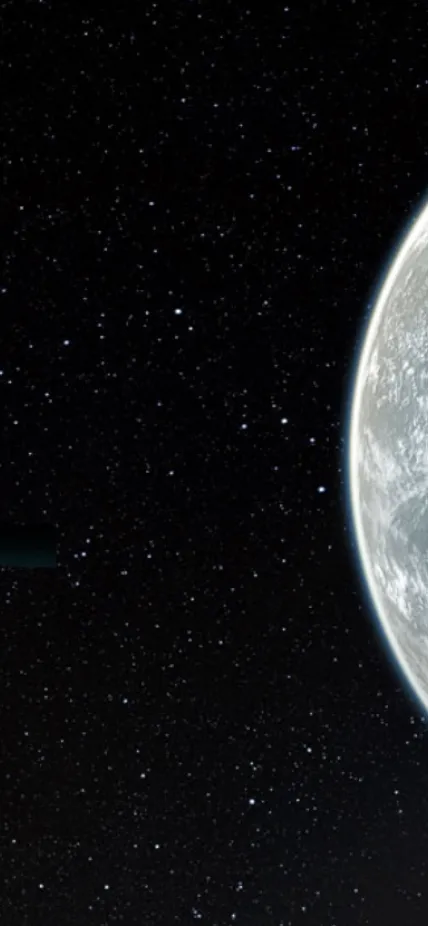
Washington, DC—Carnegie Science’s Maggie Thompson was awarded the Astronomical Society of the Pacific’s 2024 Robert J. Trumpler Award, which recognizes a recent Ph.D. recipient whose dissertation research is considered “unusually important to astronomy.”
Thompson completed her doctorate in astronomy at the University of California Santa Cruz in 2023 and joined Carnegie Science’s Earth and Planet’s Laboratory as a NASA Hubble Fellowship Program Sagan Fellow. Prior to undertaking her Ph.D. program, Thompson spent time at the Earth and Planets Laboratory as a predoctoral student.
Thompson's thesis work crossed disciplinary boundaries to include astrophysics, geochemistry, and meteoritics in order to explore fundamental questions about the origins of rocky planet atmospheres, including feasible atmospheric compositions and how to differentiate biosignatures from geological signatures. One nominator declared that her research “will be seen as the start of something new.”
Thompson used a wide array of scientific methods, including laboratory experiments on meteorites, planetary climate models, photo chemistry, and geochemical evolution to probe these critical questions about planetary habitability.
Using meteorite experiments, she was able to constrain how outgassing from rocky exoplanets produces molecules that set the stage for the development of an atmosphere. And her modeling efforts demonstrated how methane—one of the few biosignatures that can be detected by current telescope facilities—is produced in the absence of life.
Her work will prove foundational to interpreting observations from JWST, said the Astronomical Society of the Pacific in announcing her award. Her thesis work, published in Proceedings of the National Academy of Sciences, outlines a three-pronged approach for determining if observations of abundant atmospheric methane could be a sign of life.
“Congratulations to Maggie on this well-deserved recognition of her Ph.D. research,” said Earth and Planets Laboratory Director Michael Walter. “Her interdisciplinary research program is perfectly suited to Carnegie and to our campus, where researchers form a broad array of expertise inform each other’s investigations. She has an incredibly promising future and I’m excited to see how her work advances in this next stage of her career.”
At Carnegie Science, she is deploying experimental techniques to understand the link between atmospheres and the bulk composition of rocky exoplanets. As part of this work, she also collaborates with researchers at ETH Zürich in Switzerland.
In addition to her impressive research, Thompson has served as a research mentor to more junior graduate and undergraduate students and was an organizer of the Rising Stargirls Interactive Astronomy Workshops in the Bay Area. Although early in her career, Thompson has also taken on leadership roles as a member of the American Astronomical Society’s Early Career Task Force and as a National Osterbrock Leadership Program Fellow.
